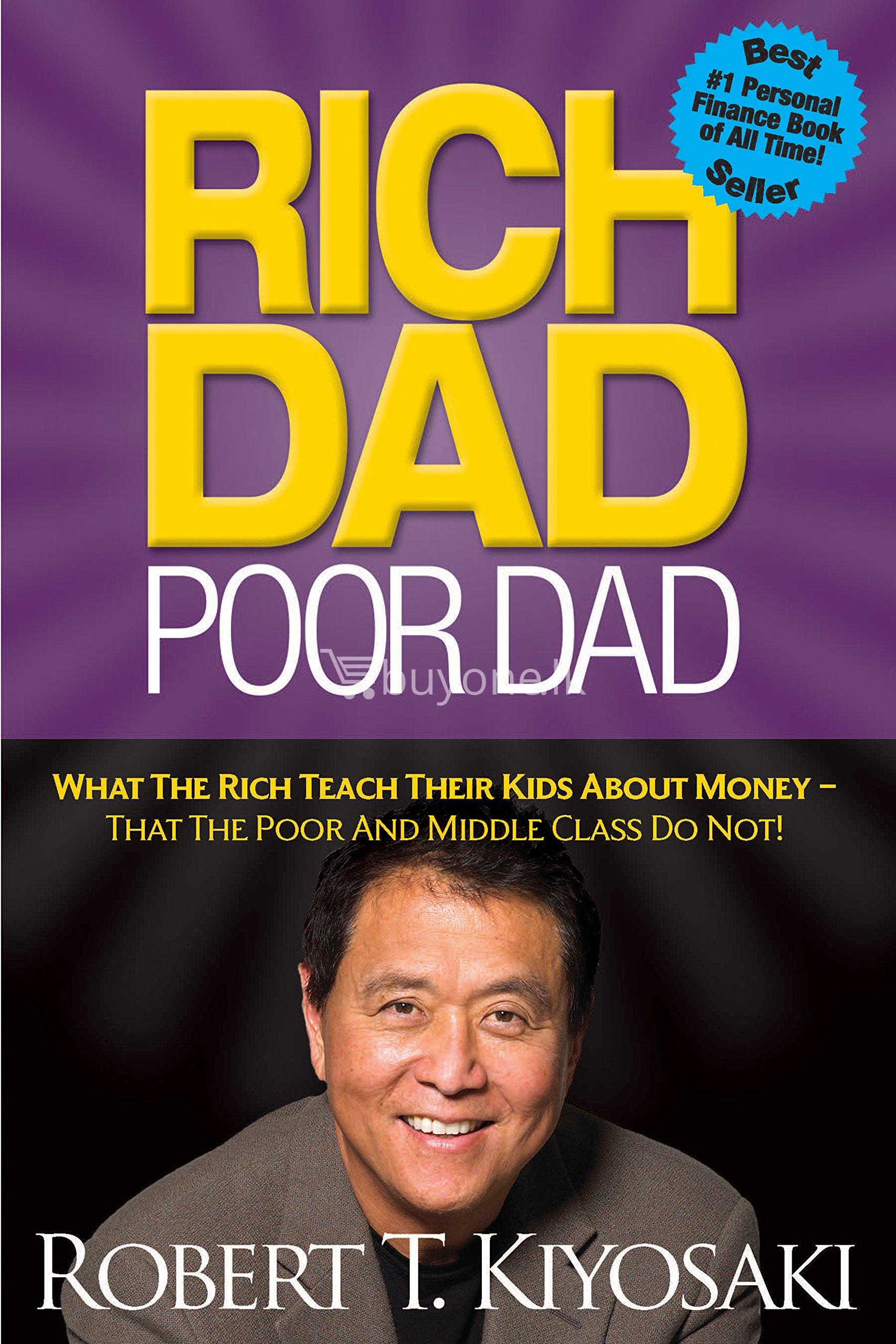Top Parenting Books
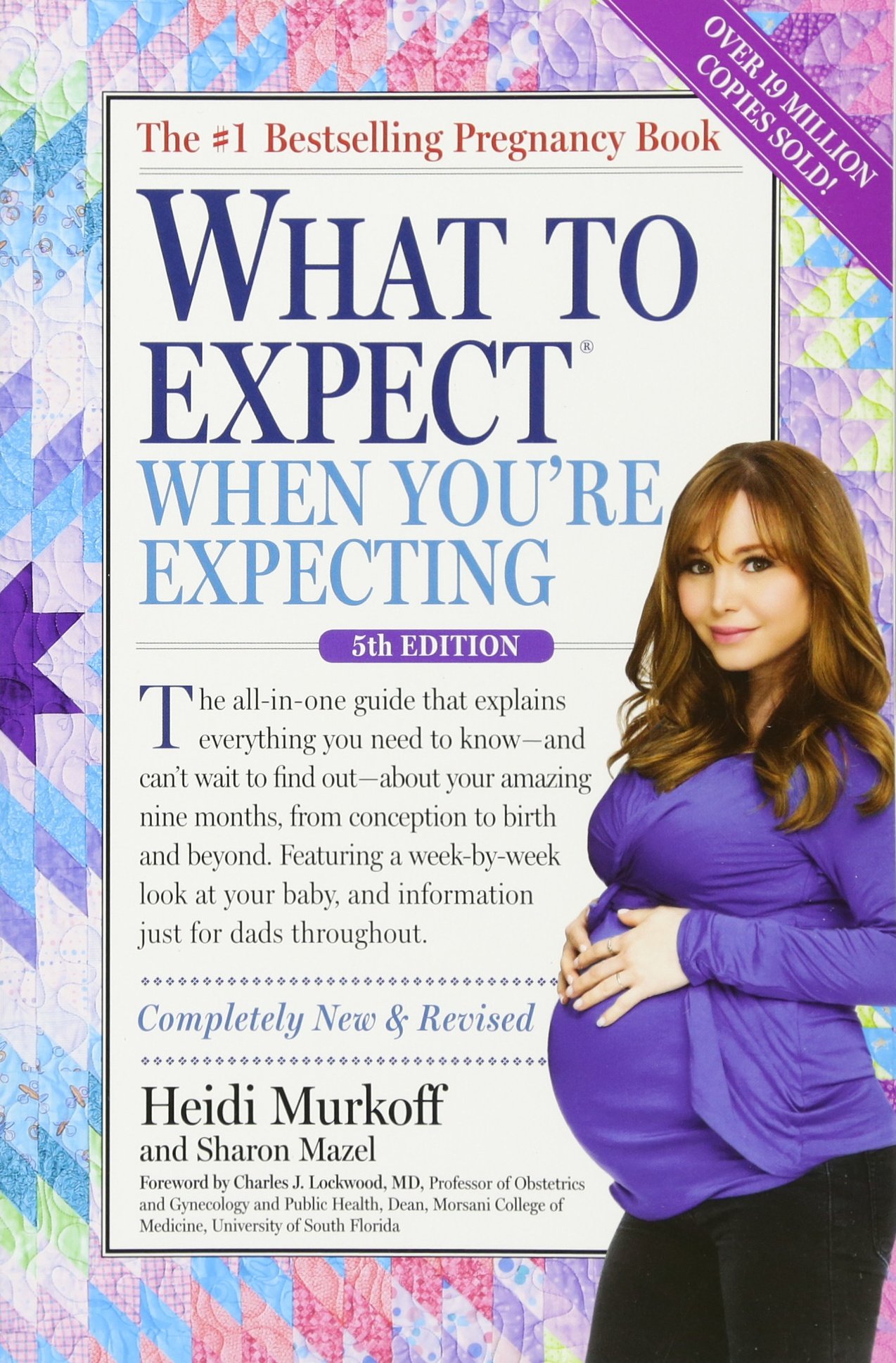
<1 min read ⌚
Parenting is right around the corner and you’re feeling unprepared? Dreading the fact that some have started a while back? Wondering if you’ll be able to do a good job?
Don’t worry – these worries are as common as stars on a bright night sky! And there are numerous ways to ease them.
Reading these 15 books may be the best one. These are the best of the best in the parenting books space!
#1. “What to Expect When You’re Expecting” by Heidi Murkoff and Sharon Mazel
 Heidi Murkoff, the brilliant brain behind the amazingly successful “What to Expect” series, is a name almost every pregnant woman in the United States knows very well. In fact, chances are if you’ve ever been pregnant and read a book on pregnancy – it’s one of hers.
Heidi Murkoff, the brilliant brain behind the amazingly successful “What to Expect” series, is a name almost every pregnant woman in the United States knows very well. In fact, chances are if you’ve ever been pregnant and read a book on pregnancy – it’s one of hers.
We can be even more accurate in our estimates – it’s most probably “What to Expect When You’re Expecting”!
You know how we know that?
Because statistics say that 93% of American pregnant women who buy a book on pregnancy, opt for this one. Making “What to Expect When You’re Expecting” the longest-running “New York Times” bestseller. Ever.
Really – do we need to say anything more?
#2. “How to Talk So Kids Will Listen and Listen So Kids Will Talk” by Adele Faber and Elaine Mazlish
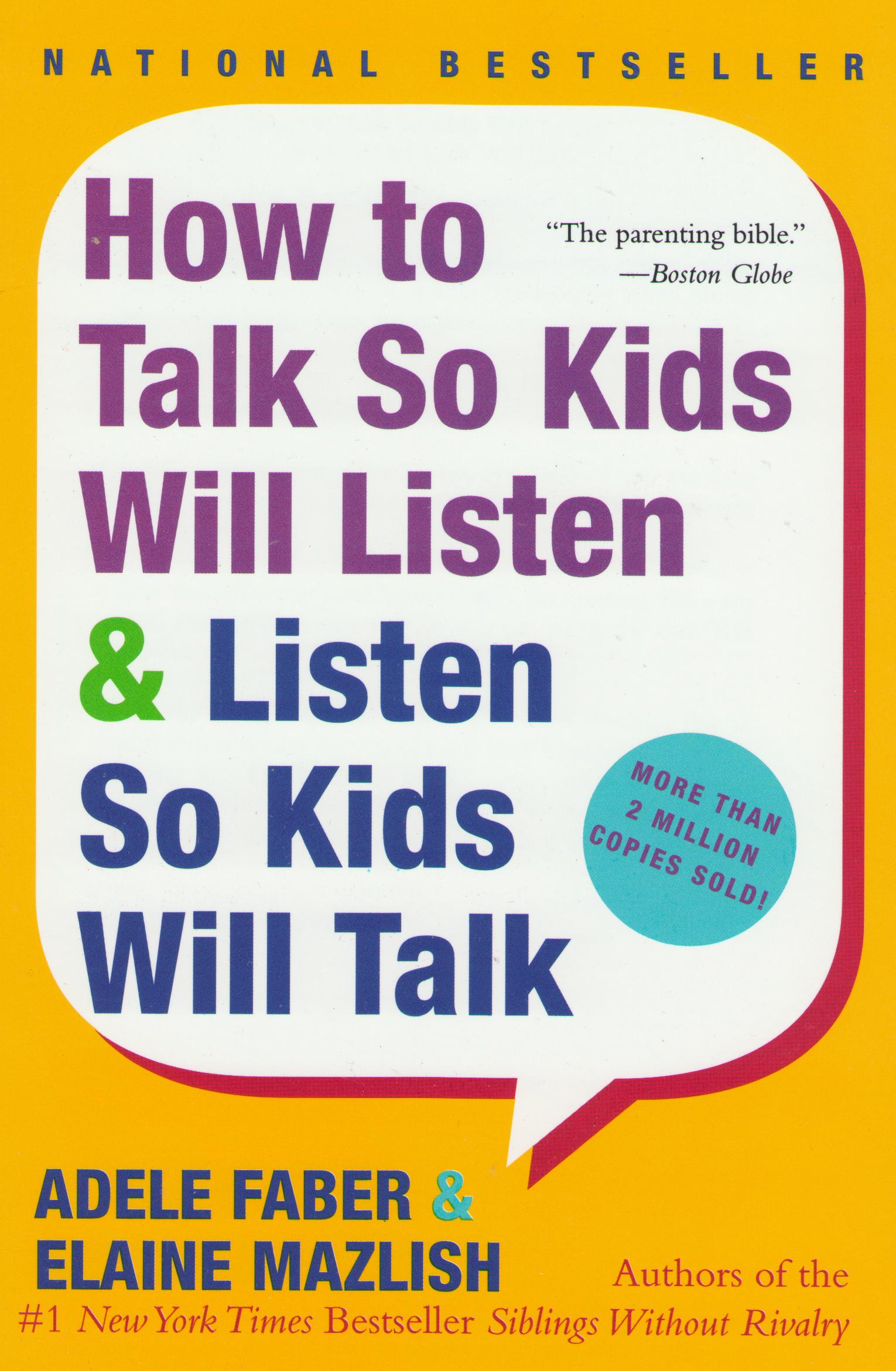 Ever since its publication in 1980, “How to Talk So Kids Will Listen and Listen So Kids Will Talk” has been repeatedly praised by experts and parents alike.
Ever since its publication in 1980, “How to Talk So Kids Will Listen and Listen So Kids Will Talk” has been repeatedly praised by experts and parents alike.
In fact, more often than not, it has topped lists such as ours. And, considering the sheer number of them in this internet age, – that should tell you something!
Down-to-earth and practical, the book focuses on what, at this moment, may seem even mythical to you: parent-child communication. Use the advice offered here and you’ll think differently. After all, Adele Faber and Elaine Mazlish are the preeminent experts in this field.
And there’s a reason why “The Boston Globe” dubbed this bestseller “the parenting bible”!
#3. “Siblings Without Rivalry: How to Help Your Children Live Together So You Can Live Too” by Adele Faber and Elaine Mazlish
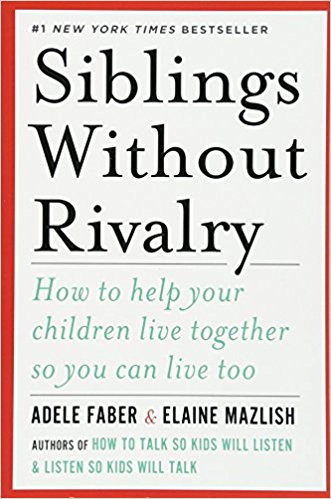 Well, we sang a few praises for Faber and Mazlish in the above entry. It was only logical that their second collaboration would find its place on our list as well.
Well, we sang a few praises for Faber and Mazlish in the above entry. It was only logical that their second collaboration would find its place on our list as well.
Once again both intelligently written and profoundly practical, “Siblings Without Rivalry” is as essential to parenting two children as “How to Talk to Kids” is to parenting itself. Faber and Mazlish know how to use their expertise in communication in this case as well.
The book will teach you how to redirect the excessive energy in your children from being wasted in bouts of conflict to being sublimated into wonderful feats of collaboration.
And it will make you smile all the way!
#4. “Parenting with Love and Logic” by Foster Cline and Jim Fay
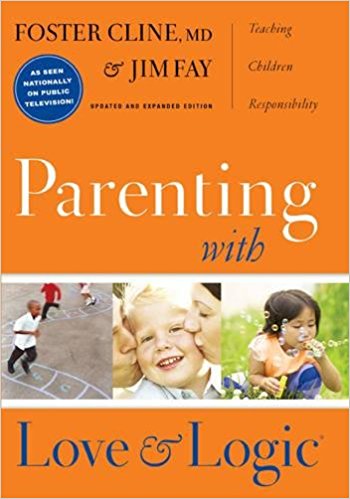 Once the children come, your life inevitably starts to change. Luckily, you have so much love in you, you’re able to go through – almost instinctively – through all those sleepless nights and recurrent tantrums.
Once the children come, your life inevitably starts to change. Luckily, you have so much love in you, you’re able to go through – almost instinctively – through all those sleepless nights and recurrent tantrums.
However, for Foster Cline and Jim Fay, love is only one part of the equation. The second part is logic. And you’re going to need a guidance in both of these areas if you want to raise a motivated child ready to face the real world.
“Parenting with Love and Logic” will help you exercise control over your children in a healthy and anger-free way. And one of the best things about it is its index. You can’t even imagine the breadth of its helpfulness!
#5. “The Happiest Baby on the Block: The New Way to Calm Crying and Help Your Newborn Baby Sleep Longer” by Harvey Karp, M.D.
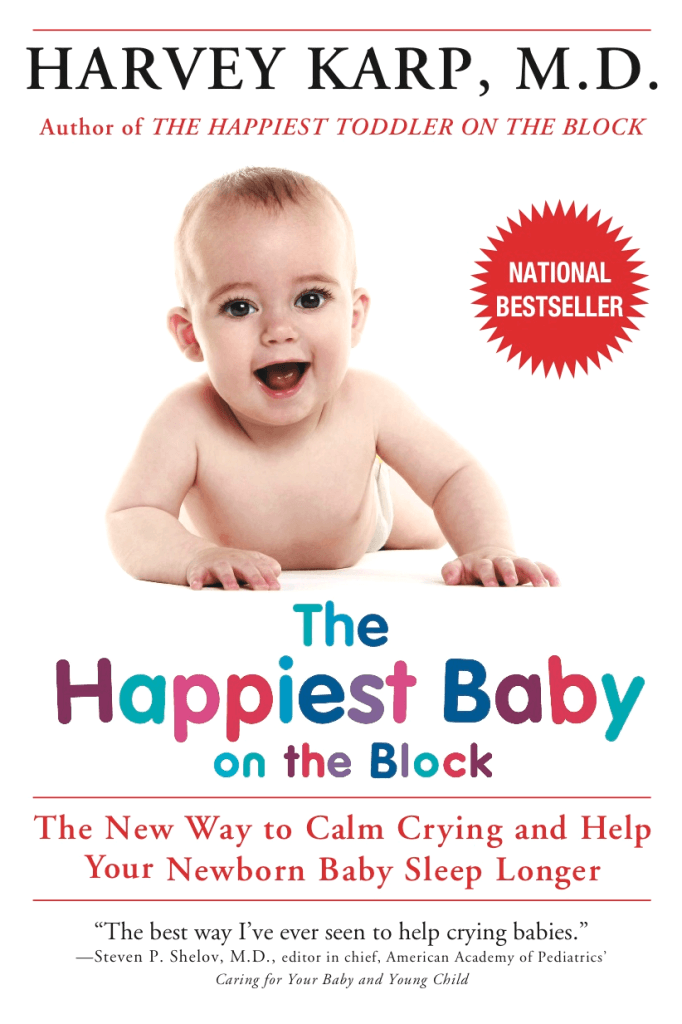 It’s a question most parents dread to even think about! You’ve guessed it: now, how should you soothe your crying baby to sleep at 2AM so you get few hours of it yourself before the exhausting workday that’s ahead of you?
It’s a question most parents dread to even think about! You’ve guessed it: now, how should you soothe your crying baby to sleep at 2AM so you get few hours of it yourself before the exhausting workday that’s ahead of you?
Believe it or not, Harvey Karp, M.D. has the answer. “The Happiest Baby on the Block” may well be titled “The Happiest Parents on the Block” because that’s how you’ll feel after implement Karp’s advices.
Methodically sound, they revolve around four key concepts: the fourth trimester, the calming reflex, the 5 S’s, and the cuddle cure. Believe us: these will become part of your everyday habits for many years after the birth of your children.
#6. “The SleepEasy Solution: The Exhausted Parent’s Guide to Getting Your Child to Sleep from Birth to Age 5” by Jennifer Waldburger and Jill Spivack
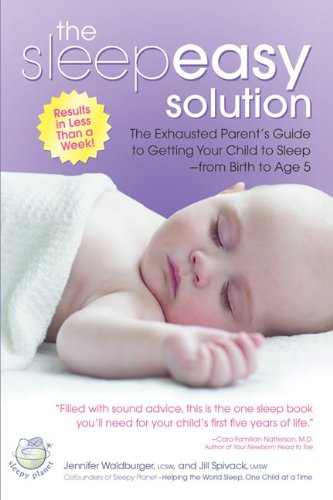 One more book about tackling sleeping problems! And this one’s written by two Hollywood psychotherapists, Jennifer Waldburger and Jill Spivack. Consequently, it’s endorsed by everyone from NBC’s Conan O’Brien to Greg Kinnear and Ben Stiller!
One more book about tackling sleeping problems! And this one’s written by two Hollywood psychotherapists, Jennifer Waldburger and Jill Spivack. Consequently, it’s endorsed by everyone from NBC’s Conan O’Brien to Greg Kinnear and Ben Stiller!
What does “The SleepEasy Solution” promise?
Well, above all, that it’s effective and that it will do its job in less than three nights. But, also something much more important: a customized sleep planner!
So, finally you’ll get the best of both worlds! Not only a child who sleeps, but also a child who sleeps, more or less, regularly.
And we don’t need to tell you what this means for you, our dear exhausted parents, right?
#7. “The Whole-Brain Child: 12 Revolutionary Strategies to Nurture Your Child’s Developing Mind, Survive Everyday Parenting Struggles, and Help Your Family Thrive” by Daniel J. Siegel and Tina Payne Bryson
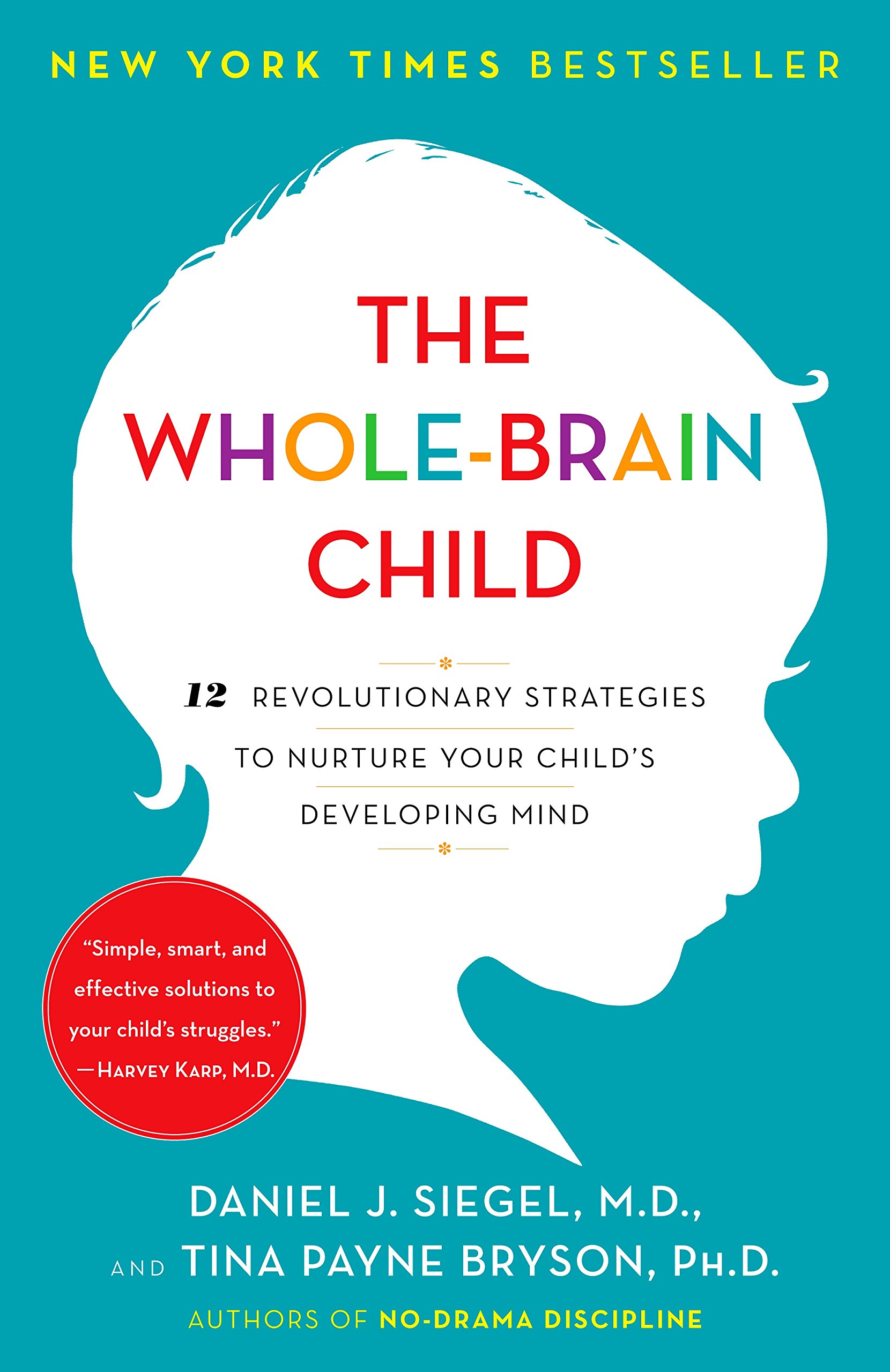 Daniel J. Siegel is a child neuropsychiatrist; Tina Payne Bryson, on the other hand, a parenting expert. No wonder that each of their three collaborations has been deemed revolutionary.
Daniel J. Siegel is a child neuropsychiatrist; Tina Payne Bryson, on the other hand, a parenting expert. No wonder that each of their three collaborations has been deemed revolutionary.
“The Whole-Brain Child,” however, has attracted the most attention. And, boy, there’s a reason why!
Frist of all, it’s based on the most advanced scientific findings. Secondly, it explains away most of your child’s behavior which may seem as irrational to you. And finally – it’s packed with practical advice you’ll know by heart few months into parenting!
The basic idea of the book is that the brain of your child hasn’t fully developed well into its twenties. And that during this period, its right side (emotions) will inevitably dominate its left side (logic). Use the authors’ 12 strategies to overcome this problem.
Oh, and did we mention: Harvey Karp strongly recommends this book.
#8. “Ten Powerful Things to Say to Your Kids: Creating the Relationship You Want with the Most Important People in Your Life” by Paul Axtell
Paul Axtell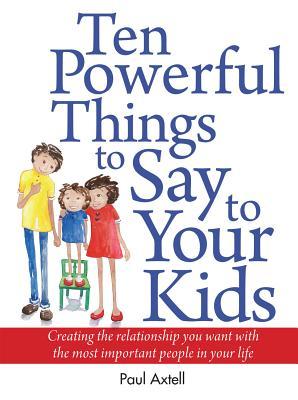 is primarily a renowned communication consultant – and has quite the portfolio to prove it.
is primarily a renowned communication consultant – and has quite the portfolio to prove it.
However, he’s also a father of two now-adults, and a grandfather of thirteen children; additionally, he’s also old enough to be able to look back on his life and see what he did right and what wrong with his children.
“Ten Powerful Things to Say to Your Kids” is where these three characteristics meet. The book neatly combines his communication theory knowhow with his experience as a parent and grandparent.
Beautifully illustrated by Jane Elizabeth Barr, this Gold Medal Winner for best parenting book in 2011 has everything you need to know about how you can improve your communication with your children.
#9. “Parenting Your Anxious Child with Mindfulness and Acceptance: A Powerful New Approach to Overcoming Fear, Panic, and Worry Using Acceptance and Commitment Therapy” by Christopher McCurry, PhD
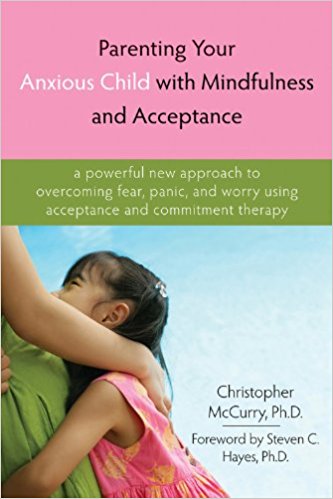 There’s a reason why we did a Top 15 list of mindfulness books; there are many of them, and many people are interested in reading them.
There’s a reason why we did a Top 15 list of mindfulness books; there are many of them, and many people are interested in reading them.
Well, Christopher McCurry was amazed to find out that in this wealth of mindfulness books, there is not one dedicated to raising a child. Which is even more fascinating when you take into consideration the fact that mindfulness helps treat anxiousness problems in adults.
Why shouldn’t it do the same in children, as well?
That’s the basic premise of “Parenting Your Anxious Child with Mindfulness and Acceptance.” Using his knowledge from acceptance and commitment therapy, McCurry revolutionizes the way parents can help their anxious children.
And he claims that his approach works even for children as young as four!
Like this summary? We’d like to invite you to download our free 12 min app, for more amazing summaries and audiobooks.

#10. “Parent/Teen Breakthrough: The Relationship Approach” by Mira Kirshenbaum and Charles Foster
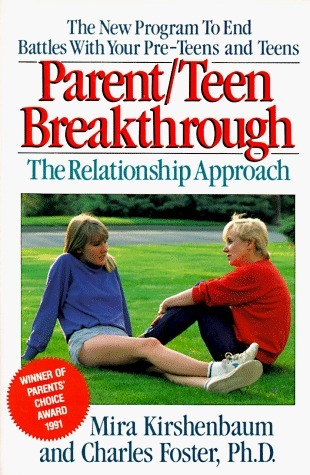 Here’s another book about parent/child relationship. This time, however, it’s about bigger and – dare we say? – more problematic children.
Here’s another book about parent/child relationship. This time, however, it’s about bigger and – dare we say? – more problematic children.
You know the drill: when the hormones kick in, the idyllic parent/child relationship you’ve developed may suddenly break down. And, there’s nowhere to turn for help. Unfortunately, it seems like whatever you’re doing, you’re only making it worse.
Well, take a chill pill and calm down! “Parent/Teen Breakthrough” will take you to the promise land, baby step by baby step!
Featuring many sample dialogues (oh, how familiar they sound!) and concrete suggestions, Mira Kirshenbaum’s and Charles Foster’s book will certainly help you build a loving relationship with your teenage child.
#11. “How to Talk with Your Kids About Sex: Help Your Children Develop a Positive, Healthy Attitude Toward Sex and Relationship” by Dr. John Chirban
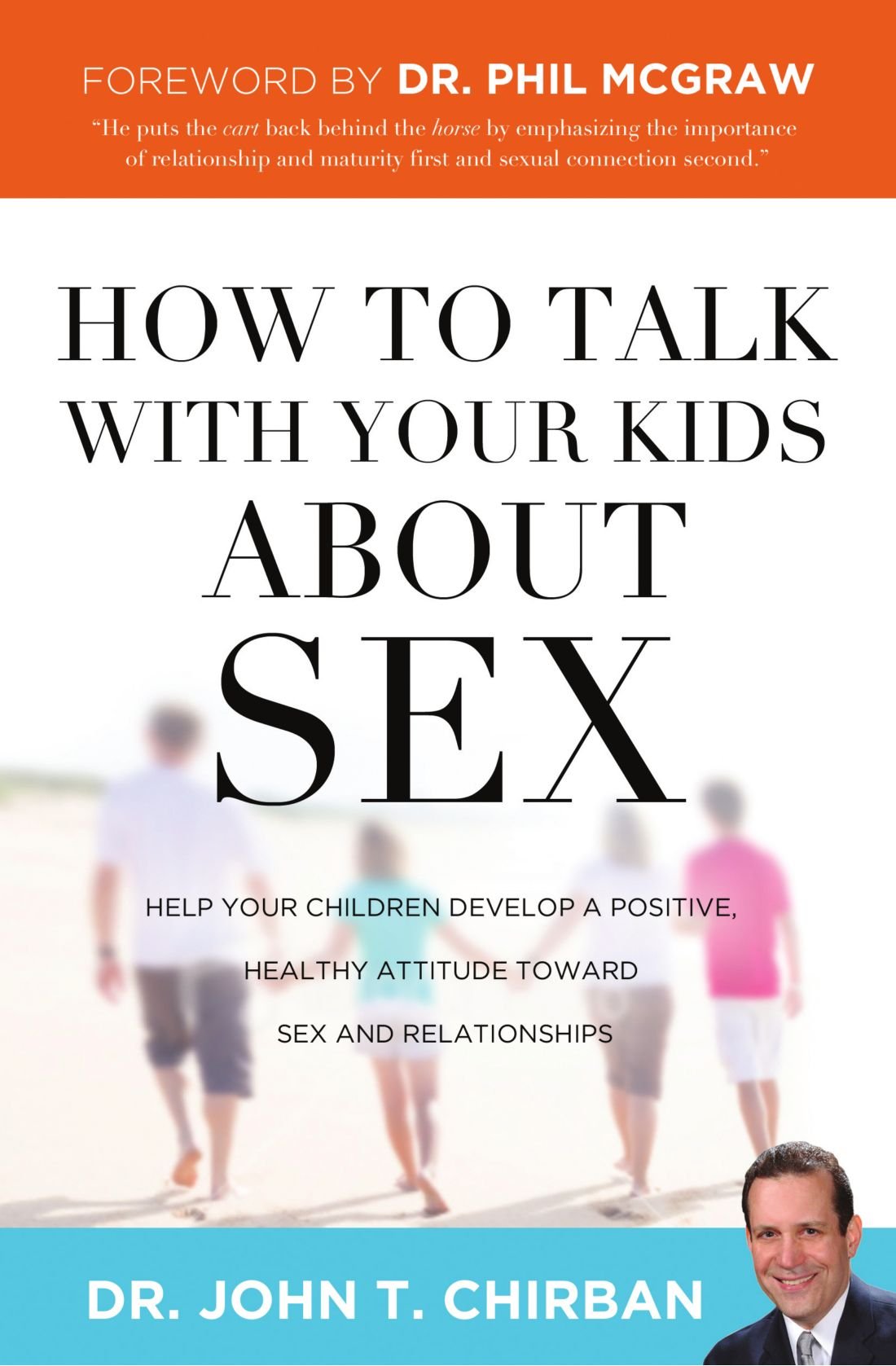 At some point during your life, your child will either ask you the dreaded question (“Mommy, Daddy – what is sex?”) or, much worse, happen upon some sex-related stuff and will try to understand on its own.
At some point during your life, your child will either ask you the dreaded question (“Mommy, Daddy – what is sex?”) or, much worse, happen upon some sex-related stuff and will try to understand on its own.
According to Dr. John T Chirban, by this moment, it may be a bit too late to start talking with your child about sex. But, how would you know when it’s too early?
Well, that’s where “How to Talk with Your Kids About Sex” comes in handy. Chirban explains parents the when-s, the how-s, and the why-s – at each stage of a child’s development.
So you can plan well and plan ahead!
#12. “1-2-3 Magic: Effective Discipline for Children 2-12” by Thomas W. Phelan, Ph.D.
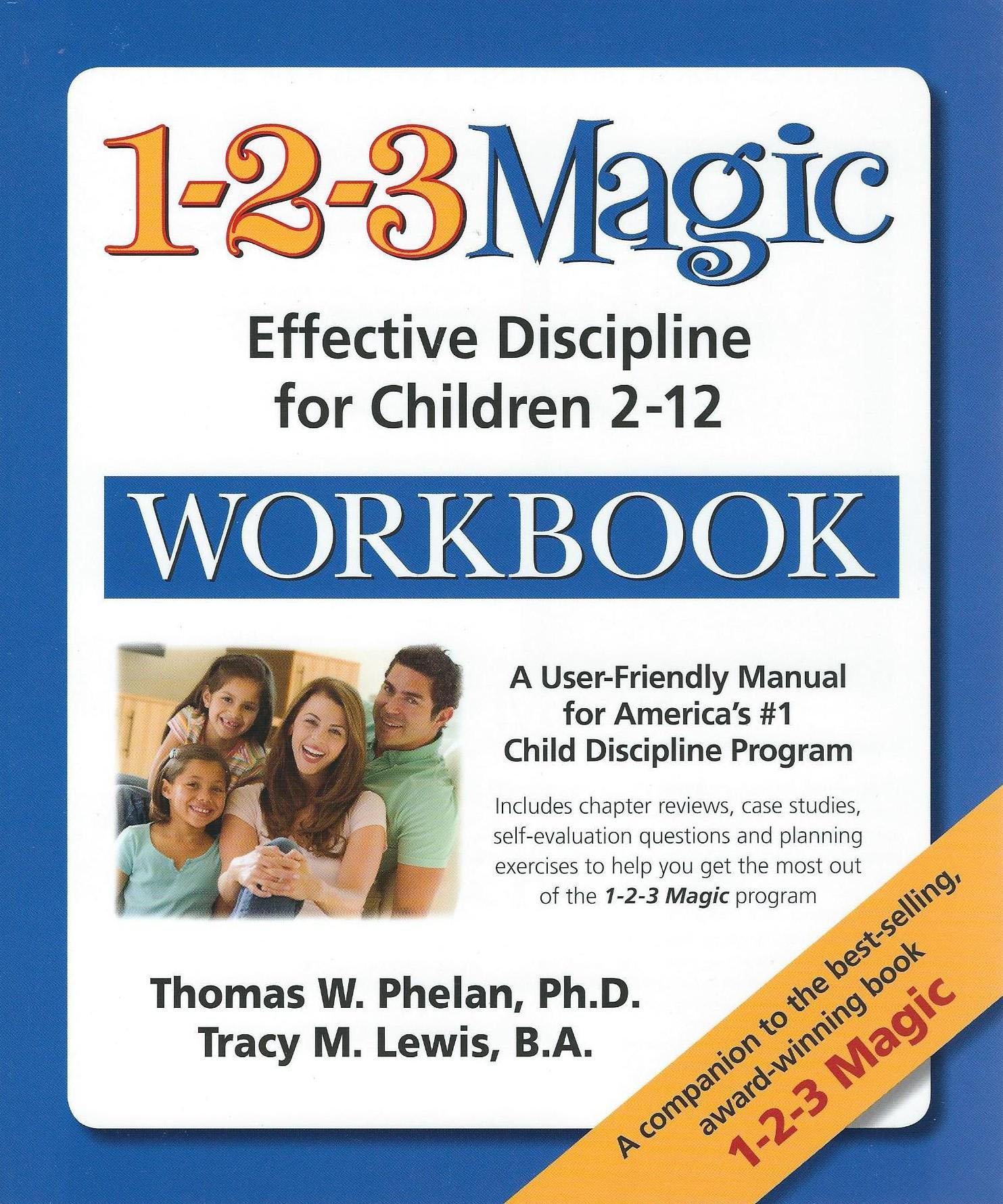 Thomas W. Phelan is a clinical psychologist with a Ph. D. And his objective in “1-2-3 Magic” is to easily and straightforwardly use his expertise to make your and your child’s life happier and more fulfilled!
Thomas W. Phelan is a clinical psychologist with a Ph. D. And his objective in “1-2-3 Magic” is to easily and straightforwardly use his expertise to make your and your child’s life happier and more fulfilled!
And when we say easy – we mean as easy as 1-2-3! Because, according to Phelan, there are exactly three steps to becoming a better parent!
First of all, you need to teach your children to control their emotions. Secondly, you need to encourage their good behavior by providing positive feedback and rewards. And, finally, you need to strengthen the parent/child bond.
How?
Well, that’s what the book is about! And its methods work for all children aged 2 to 12!
#13. “Unconditional Parenting: Moving from Rewards and Punishments to Love and Reason” by Alfie Kohn
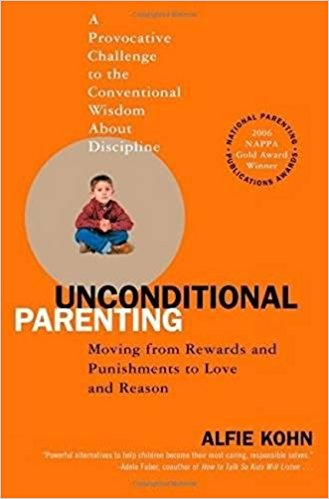 You may already know Alfie Kohn as a crusader against grade-based education. In fact, “Time Magazine” has described him as “perhaps the country’s most outspoken critic of education’s fixation on grades and test scores.”
You may already know Alfie Kohn as a crusader against grade-based education. In fact, “Time Magazine” has described him as “perhaps the country’s most outspoken critic of education’s fixation on grades and test scores.”
Many TV appearances – yes, including twice on Oprah – have merely reinforced this idea of Kohn as
However, he has also written one of the best books about parenting. And it’s directed against the same perceptions which rile him up in the current US education system. You see, “Unconditional Parenting” claims that the whole parenting paradigm is wrong.
That, in fact, it’s not about learning how to control your kids, but about finding out how to work with them. Because, all children need unconditional love. And, because, through the right training, offering it works best for both sides.
#14. “All Joy and No Fun: The Paradox of Modern Parenthood” by Jennifer Senior
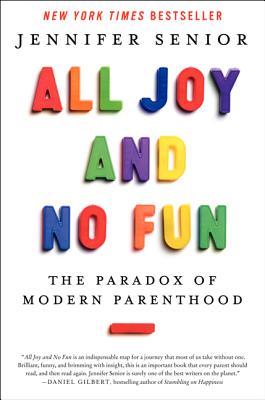 Unlike most of the books on this list, “All Joy and No Fun” is much more theoretical than a practical volume. Interestingly enough, this is exactly what makes it not only unique, but also a must-read.
Unlike most of the books on this list, “All Joy and No Fun” is much more theoretical than a practical volume. Interestingly enough, this is exactly what makes it not only unique, but also a must-read.
Jennifer Senior is an award-winning journalist, whose political columns have been frequently anthologized. In “All Joy and No Fun” she shows a completely different side of herself, exploring one aspect of life you’d think hasn’t changed much during the past millennia.
However, Senior claims that it has – and radically so. As a result of this, she argues, modern parents have much more complex and far less clear roles than ever before.
Which makes parenting both a joy and – well, a pretty difficult job. Senior might not help you do it – but, she will definitely help you feel less alone.
#15. “Rich Dad Poor Dad: What the Rich Teach Their Kids About Money – That the Poor and Middle Class Do Not!” by Robert T. Kiyosaki
“Rich Dad Poor Dad” is not really a book you would expect to find on a list of the 15 best parenting books ever written. Yet, we had no doubts we’ll include it right from the start.
An autobiographical story about Robert Kiyosaki’s early years, “Rich Dad Poor Dad” tells the story of how his worldview was influenced by two very different paternal figures. The first one, Kiyosaki’s real dad, was a well-educated employee; the second one, the father of his best friend, a street-smarts entrepreneur.
Who do you think was the rich one?
And that’s why we chose to include this book. If you want to raise a financial maverick, it will be a good idea to start from the very beginning.
Albeit implicitly, Kiyosaki explains how.


